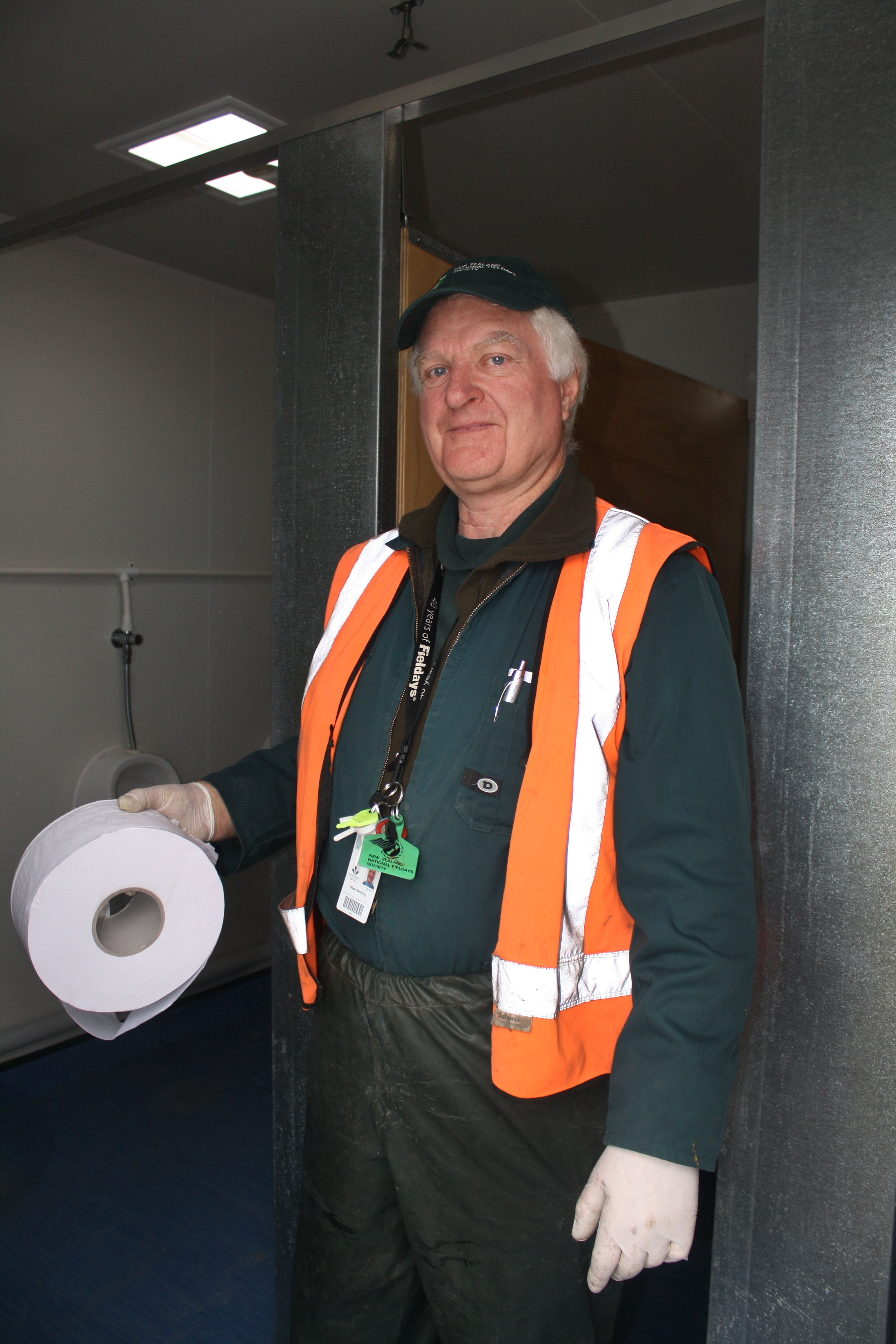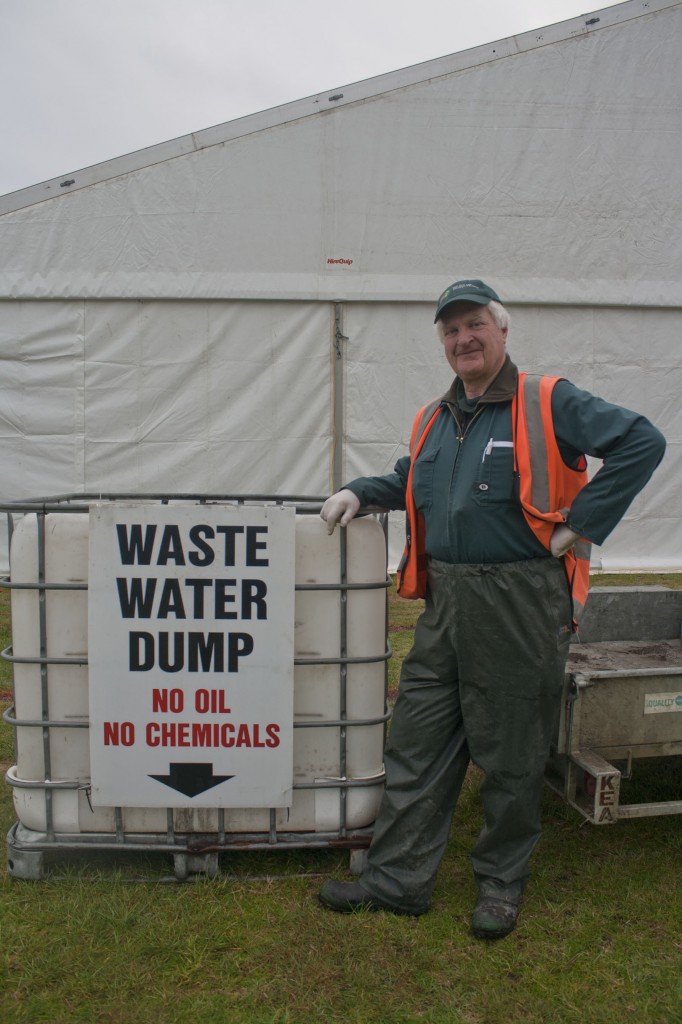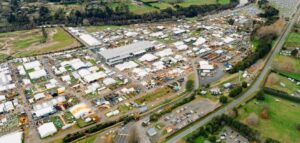Fieldays have their very own volunteer Kenny
Toilets may not be a particularly glamorous subject. We expect to see them everywhere we go, clean, fully stocked with toilet paper and functioning perfectly.
Fieldays – to Alan Sharp it is a seamless show that includes around 600 jumbo sized rolls of toilet paper, 100 cartons of hand towels, 10 cartons of liquid soap, rubbish bags and liners.
These are used to supply 16 toilet blocks plus 28 portaloos.
At any one time, says Alan, up to 250 people can be on the loo at the Fieldays.
Toilets may not be a particularly glamorous subject. But they are an integral part of day-to-day life. We expect to see them everywhere we go, clean, fully stocked with toilet paper and functioning perfectly.
For National Agricultural Fieldays volunteer Alan Sharp, 66, this means months of preparation to ensure the toilets run smoothly over the four day event.
“What started out as a few volunteered weekends on site now becomes my annual Everest to climb,” the Hamilton man says.
Alan sees the Fieldays, in particular the smooth running of the toilets, as his personal goal every year.
That’s when tens of thousands of people daily expect to be able to use available, clean, and fully functioning toilets.
This, for Alan and his team, means a lot of behind-the-scenes work in the months that build up to Fieldays.
He works hand-in-hand with his “right hand man” Neil Quinlan, a team of 26 years. Alan keeps the toilets operating and serviced while Neil keeps the water flowing.
Tasks include coming out on site at 5am to check the water supply and make sure everything is clean and running well. They organise the hiring of portaloos, and make sure toilet paper, soap, hand towels, and everything to do with toilets is organised and ready to go.
The two men are a dedicated team, both clocking up around 380 volunteered hours each year while juggling job, family and other commitments. And then there are the numerous meetings they have to attend.
There are “a dozen or so multi-level committee meetings, subcommittee meetings held during the day and the full Ag committee meetings being held at night,” Alan says.
Always striving for better, each year Alan tries to overcome problems to “put on what appears to the casual eye, a seamless show for all”.
The toilets have upgraded in both technology and comfort since Fieldays began. Alan and many others would set up temporary outhouses – something that would be unthinkable today. Lucky for us, the toilets now range from small blocks of three or four (flushing) toilets to larger blocks with nine or 10 toilets, along with the portaloos.
Keeping the toilets serviced over the four days is no light task. There are six cleaners and two registered plumbers on site to make sure everything runs smoothly, with Alan in the background.
“I have eight radio telephones and so many specialised people at my disposal to get in at the first sign of trouble before little issues become major issues.
“I like to be on site soon after 5.30am to check on the various main contractors and see that all is ready for the public gate which opens at 8am.

“It can be 9am or later before I take a breakfast break. There are always loose ends that need attention.
“Throughout the day we are constantly on call or making progress checks of services and taking remedial actions.”
Along with this Alan needs to ensure all wastage from the event – toilet waste, but also the excess water from food stalls and demonstration kitchens – is collected, removed, and approved for disposal.
“The days of the Territorial army soup kitchens and … hand wash water being dumped on our sandy soil, at the back of the tent, are long since gone.”
The schedule may seem hectic, but the comradeship of the volunteers and sense of achievement in showcasing New Zealand agriculture sees Alan back year in and year out.




